| General Data | |
| Manufacturer (OEM) | FSP |
| PCB Type | Double-Sided |
| Primary Side | |
| Transient Filter | 4x Y caps, 3x X caps, 2x CM chokes, 1x MOV (TVR14561), 2x Gas Discharge Tubes (SMD) |
| Inrush Protection | NTC Thermistor (SCK-056, 5Ohm) & Relay |
| Rectifier MOSFETs |
4x Infineon 60R600P7 (650V, 4A @ 100°C, Rds(on): 0.115Ohm)
|
| APFC MOSFETs |
2x Infineon IPZ60R099C7 (600V, 14A @ 100°C, Rds(on): 0.19Ohm)
|
| APFC Boost Diode |
2x CREE C3D08065I (650V, 8A @ 130°C)
|
| Bulk Cap(s) |
2x Nippon Chemi-Con (420V, 470uF each or 940uF combined, 2000h @ 105°C, KMZ)
|
| Main Switchers |
4x Alpha & Omega AOTF160A60L (700V, 15A @ 100°C, Rds(on): 0.16Ohm)
|
|
IC Driver |
2x Novosense Micro Labs NSi6602 |
| APFC Controller |
Infineon ICE2PCS02
|
| Resonant Controller |
Champion CM6901T2X
|
| Topology |
Primary side: Bridgeless PFC, Full-Bridge & LLC converter
Secondary side: Synchronous Rectification & DC-DC converters |
| Secondary Side | |
| +12V MOSFETs |
6x Toshiba TPHR8504PL (40V, 100A @ 100°C, Rds(on): 1.4mOhm)
|
| 5V & 3.3V | DC-DC Converters: 6x Infineon BSC0901NS (30V, 94A @ 100°C, Rds(on): 1.9mOhm) PWM Controller(s): uPI UP3861P |
| Filtering Capacitors | 6x Nippon Chemi-Con (2-5,000 @ 105°C, KZE) 2x Rubycon (1-5,000 @ 105°C, ZL) 2x Rubycon (6-10000 @ 105°C, ZLH) 2x Chemi-Con (6-10000 @ 105°C, KZN) Polymer: 34x Chemi-Con, 1x FPCAP |
| Supervisor IC | Weltrend WT7527RA (OVP, UVP, OCP, SCP, PG) |
| Fan Model | be quiet! Silent Wings BQ SIW3-13525-HF (140mm, 12V, 0.56A, Fluid Dynamic Bearing Fan) |
| 5VSB Circuit | |
| Rectifier |
1x CET CEB04N7G FET (700V, 4A, Rds(on): 3.3Ohm
1x Infineon BSC0901NS FET (30V, 94A @ 100°C, Rds(on): 1.9mOhm) 1x P15L50N5 SBR (50V, 15A) |
I can tell that this is an FSP platform by a small detail only, without further examination of the potentiometers on the boards. Although adjusting is tempting, you should avoid doing so because you will probably alter the PSU’s proper operation. The PCB is large, with enough space between parts for excellent airflow, which is perhaps why be quiet! didn’t bother increasing the perforations on the chassis inlet and exhaust grilles.
To achieve Titanium efficiency, FSP utilized a bridgeless PFC converter, where instead of the classic bridge rectifiers, FETs rectify the incoming AC signal. FETs have notably lower power losses than diodes, so a bridgeless PFC is more efficient. The main FETs are installed into full-bridge topology, and an LLC resonant converter is also used to boost efficiency. On the secondary side, a synchronous rectification scheme regulates the 12V rail, and a pair of VRMs generate the minor rails.
FSP used quality parts, and the soldering quality is good. All capacitors are by Japanese manufacturers, and the frameless cooling fan uses a fluid dynamic bearing for lower noise output and increased reliability.
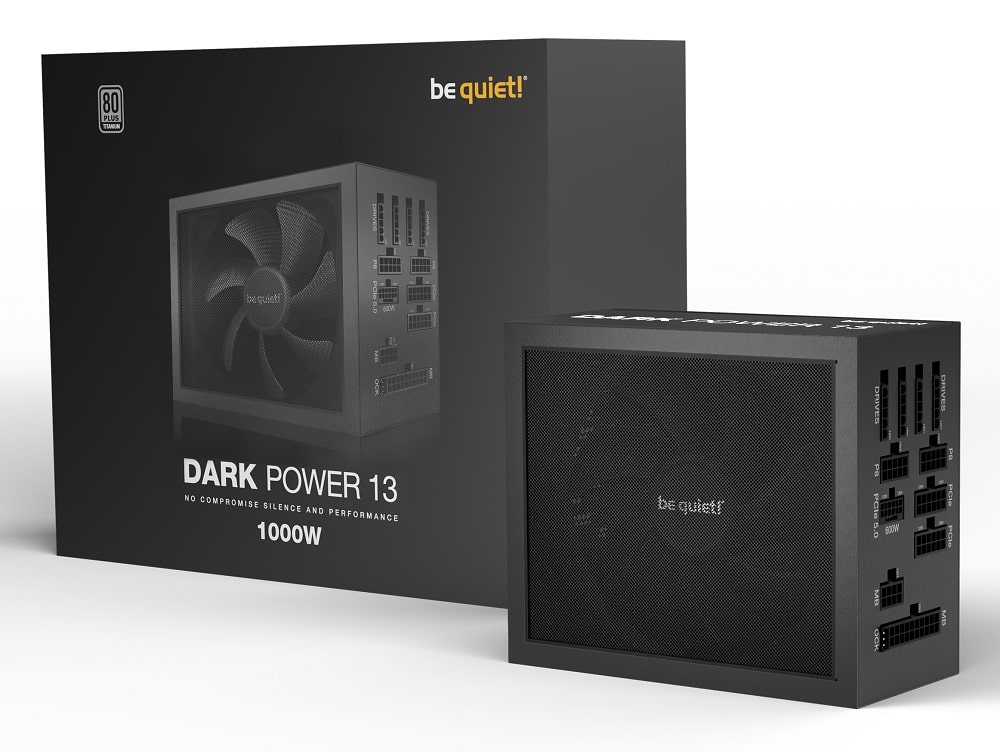
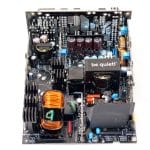
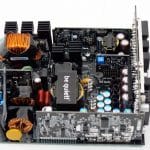
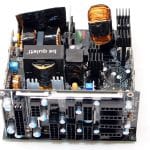
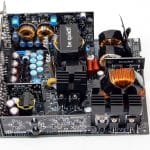
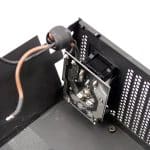
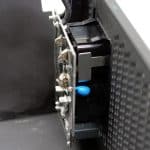
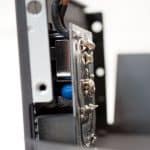
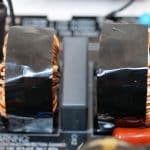
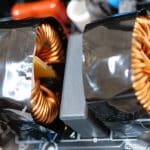
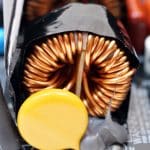
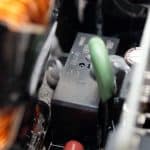
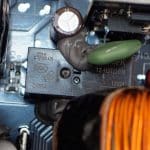
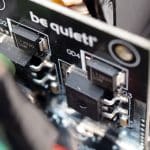
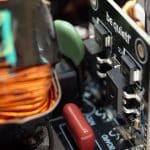
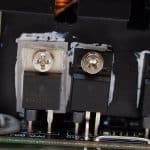
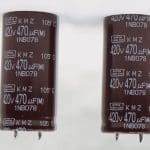
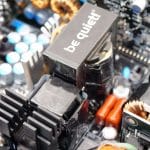
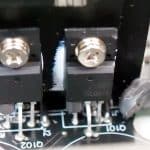
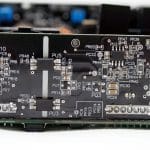
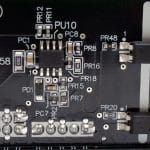
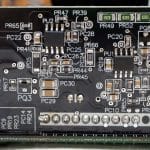
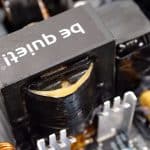
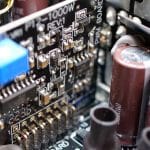
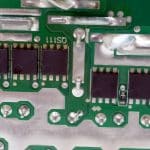
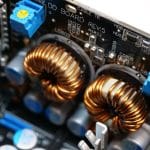
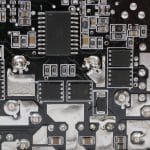
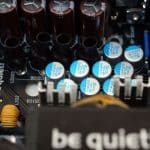
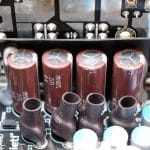
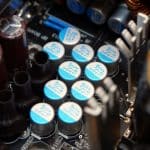
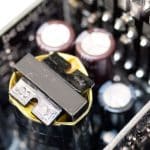
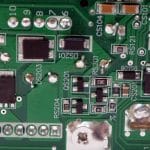
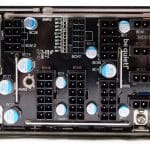
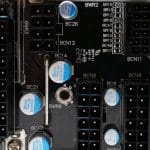
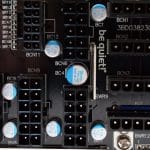
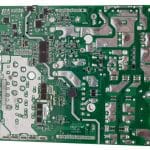
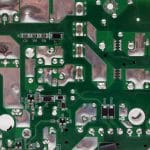
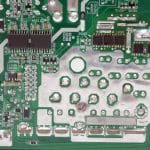
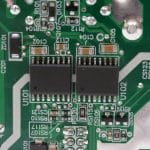
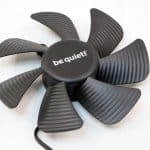
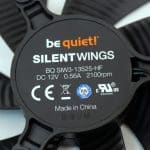
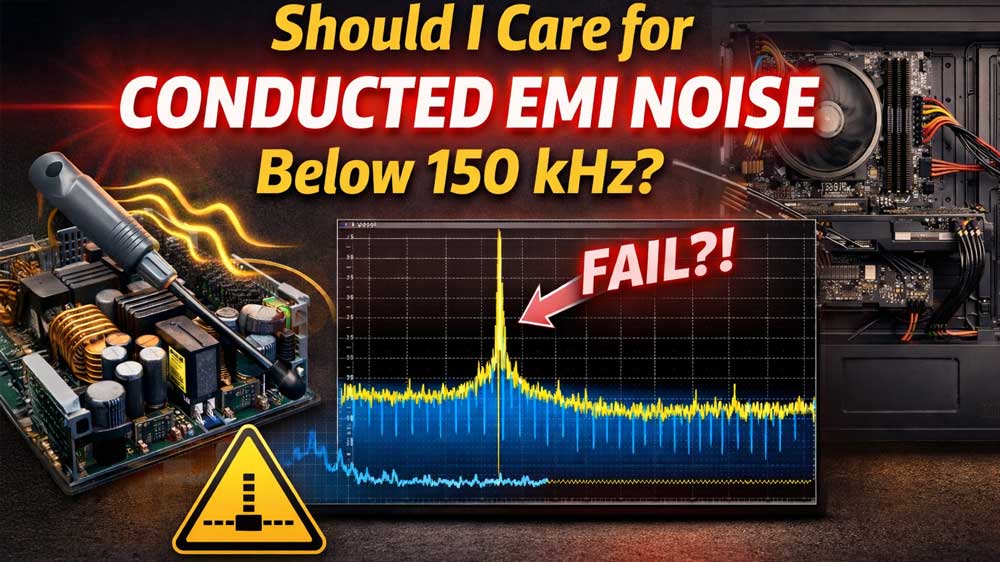
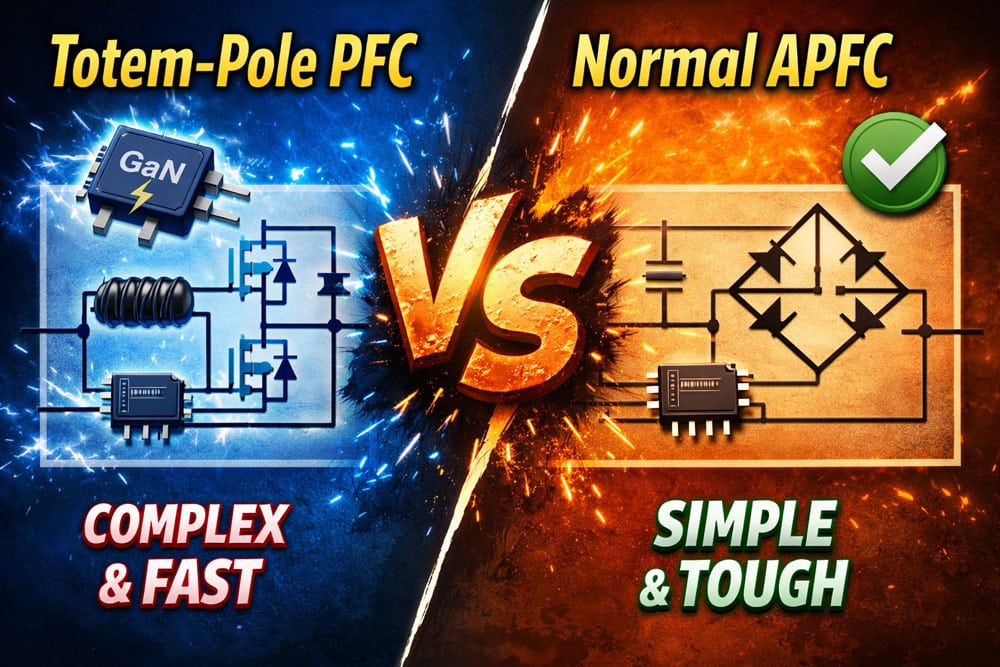
A review of the be quiet! Dark Power Pro 13 1300W (or 1600W) would be very welcome.
The 1600 is on my list 🙂
Great! Do you have a time frame for the release of your review?
Does your Dark Power model suffer from a fan that spins with an “rrrrrrrrrrrr” noise?
I have a Dark Power Pro 12 and some user reviews of the Dark Power 13 in the UK report that the fan noise is persistent.
There are some areas where then noise is increased, because of the bearing noise, but it is too low in general.
RPM Noise (LAeq) – Corrected
380 6
386 6
389 6
390 6
391 6
392 6
393 6
394 6
395 6
396 6
398 6
399 6
400 6
401 6
404 6
406 6
442 6.8
443 6.1
450 9.2
471 7.9
572 13.2
648 17.6
656 14.4
693 16.5
848 24.4
1027 27.5
1090 28.6
1133 32.6
1240 33.0
1321 34.1
1398 35.8
1556 39.1
1614 40.4
1684 42.7
1938 45.0
1951 45.1
2011 45.8
2013 45.8
2014 45.8
2015 45.8
2016 45.8
2017 45.8
2019 45.8
2020 45.9
I got two Dark Power 13 100W from two different online retailers and they both have obvious bearing noise. Stay away.
A bit of further messing about, it seems that the one I tried it with would make no irregular fan noise when placed fan up, but makes obvious bearing noise when oriented fan down.